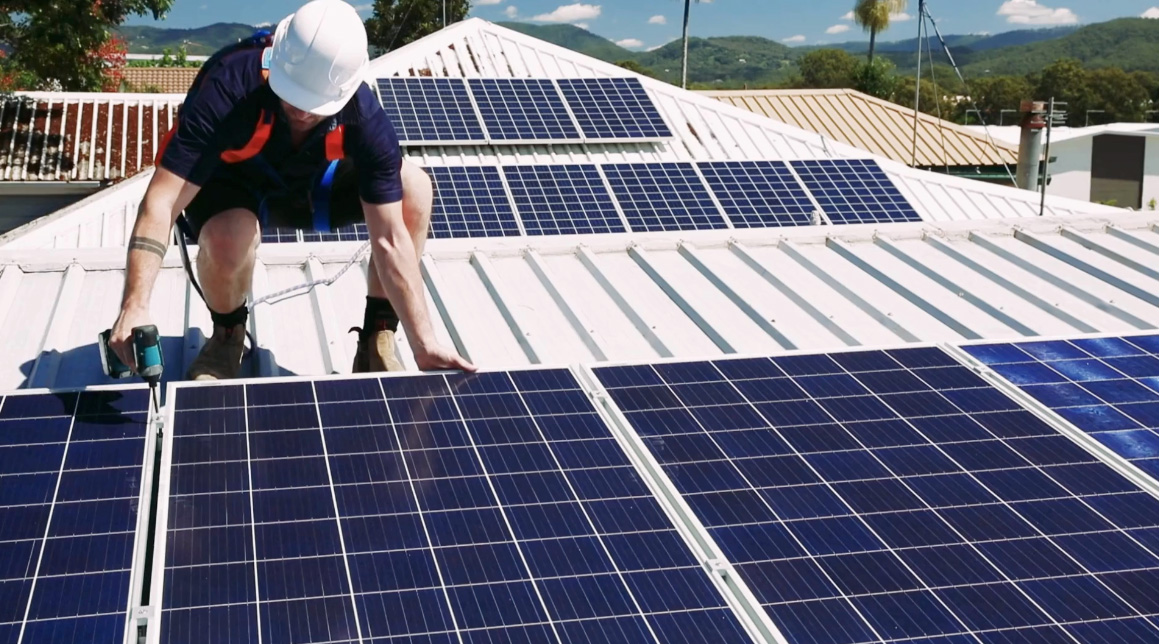
13 May Solar Panels and Selling Your Home: What Arizona Homeowners Need to Know
Solar energy seems like a smart choice—especially in sunny Arizona. But if you’re thinking of selling your home now or in the next few years, solar panels might not add as much value as you’d expect. In fact, they can oftentimes complicate a sale.
I’m Elise Fay with the Sibbach Team, and after more than 20 years in real estate, I’ve helped many clients navigate the pros and cons of solar. I’m not here to convince you one way or the other—I’m here to give you the honest truth based on what I’ve seen firsthand in today’s market.

Not All Solar Is the Same
There are two main types of solar panel setups you’ll typically see:
- Leased Solar Systems
These usually come with a 20-year agreement, and the monthly payment often increases by about 2.9% annually. The idea is that you’re locking in lower energy costs compared to future rate hikes from APS or SRP.
But here’s where it gets tricky—most buyers don’t want to assume a lease.
I recently helped a seller who had not one, but two active solar leases. One was installed when she moved in, and another was added just eight months before she decided to sell. Finding a buyer willing to take on both leases was incredibly difficult, and it definitely slowed the process down.
- Owned Solar Systems
These systems are purchased outright or financed, and they can run anywhere from $40,000 to $80,000 depending on your home’s size.
One of my clients spent $80,000 on a solar system, only to be relocated across the country a year later. Thankfully, he had paid it off in full, which made it easier to market the home. But imagine trying to sell a $700,000 house and asking a buyer to also take over a solar loan for another $80,000. That’s a tough sell—especially in a market where buyers are watching every dollar.
Do the Numbers Make Sense?
Before signing any solar contract, ask this key question:
Is the monthly solar payment actually lower than your utility bill?
In one case, a buyer inherited a 10-year-old solar lease with another 10 years left. We dug into the numbers to compare the lease cost against real energy usage—and we realized the homeowner was still paying massive electric bills because his plan had him on peak rates from 9 a.m. to 9 p.m. That meant all his daytime usage—air conditioning, appliances, everything—was being charged at the highest rate.
When the buyer called APS to ask about changing to off-peak hours, they said, “Sure—you can do that. But if you change, we’re going to reduce the buyback rate for your solar energy from $0.43 per kilowatt to $0.06.”
So yes, solar can save money—but only if you understand how your rate plan works with your system. Otherwise, you could be stuck paying more than you expected.
Planning to Stay Long-Term? That’s a Different Story.
Here’s where I think solar can make sense:
If you know you’re staying in your home for the next 15 to 20 years, solar might be a smart investment.
But if there’s any chance you’ll move sooner, it’s worth thinking twice. You’ll need to find a buyer who sees the same value in your system that you did—and that’s not always easy.
And if you’re signing a lease? Please—read the fine print. Or better yet, have an attorney read it. Many agreements also involve your electric company, which limits your flexibility to change rate plans down the road.
I know this topic can be controversial, but based on what I’ve seen over the years, solar doesn’t always help a home sell faster or for more money. In some cases, it creates more questions than answers.
But every situation is different—and if you’re considering installing solar, buying a home that already has it, or selling a home with panels, I’d love to help you sort through your options.
📞 Give me a call or shoot me a text at (602) 329-7782—I’m happy to share what I’ve learned and help you make a smart move, solar or not.


